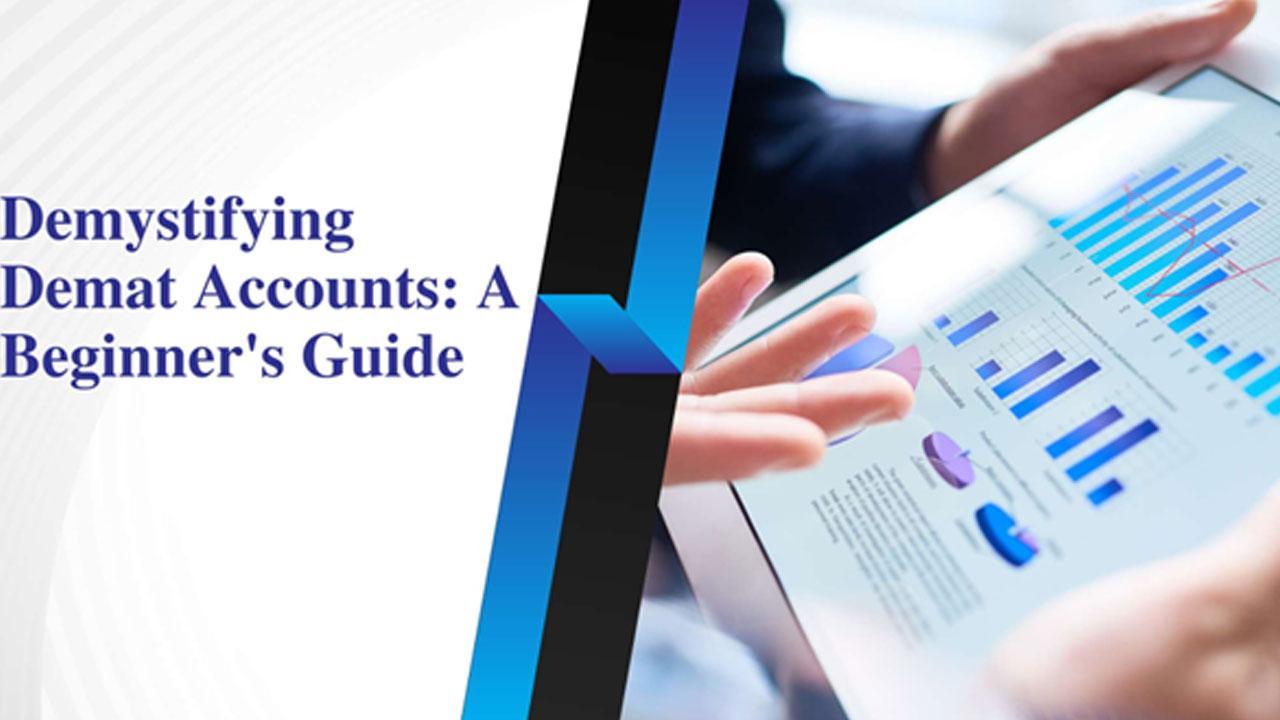Demystifying Demat Accounts or dematerialized account, is an account wherein your shares will be held in an electronic manner.

Demat Accounts
The investment world is expanding rapidly due to the increased interest in stock markets as a means of gaining wealth. In this investment journey, a demat account app is an indispensable tool to manage your investments effectively. If you're a new investor and wondering what a Demat account is and why you should have one, you've come to the perfect place. Here, we have covered a detailed explanation of the Demat account.
What is a Demat Account?
A demat account, or dematerialized account, is an account wherein your shares will be held in an electronic manner. Unlike physical share certificates, which can easily be lost, destroyed, or stolen, demat accounts provide a safe and secure method to retain your investments.
Benefits of a Demat Account
The following benefits are associated with the Demat account:
Dematerialization of Shares: As the name indicates, the likelihood of loss from physical share certificates is eliminated. Earlier, physical share certificates had to be stored carefully as they were vulnerable to damage. Demat accounts save everything electronically, which saves you the hassle.
Trading Convenience: Most stockbrokers require a Demat account to facilitate buying and selling shares, additionally, you can manage your investments easily anytime, anywhere, by simply using your mobile phone or a laptop.
Dividends and Bonus Credits: Your Demat account gets all the dividends and bonus shares directly credited.
Safe: A Demat account is very secure because it is kept under depository participants (DPs) who are regulated entities. It saves you from being a victim of fraud and scams.
How does a Demat Account work?
You can open a Demat account by approaching any Depository Participant (DP), which is typically a bank or a financial institution. You will be required to fill out an opening account form that includes all the necessary information and submit documents such as KYC (Know Your Customer) and proof of identity. Once your account is opened, you can begin purchasing and selling shares through a broker.
The depository, being a central agency (central depository NSDL or CDSL in India), keeps a record of your shareholdings. Your Demat account gets credited with shares when you buy them and gets debited when you sell them.
In addition to shares, other assets such as bonds, mutual funds, exchange-traded funds, government securities, etc. can be held in the Demat account. A demat account for mutual funds has benefits, including centralized portfolio administration and the capacity to hold many assets in one location. You can consult a mutual fund investment advisor for more insights.
How to Select a Demat Account
When you are opening your Demat account, keep the following things in mind;
Charges: Compare annual maintenance charges, transaction charges, etc.
Brokerage Services: The DP might also be a brokerage firm itself.
User Interface: Ensure the user interface is exactly what you require to be convenient and contains the right features and functionalities.
Customer Service: Sufficient customer service is the bottom line for any financial service.
Explanation of Frequently Used Terms
Here are the most frequently used terms:
Depository Participant (DP): An entity that acts as a mediator between the holder of a security and the depositor.
Beneficial Owner: The person who owns the securities held in a Demat account.
ISIN (International Securities Identification Number): A code through which a security is uniquely identified.
How to Open a Demat Account Online
To open a Demat account online, follow the below steps:
Select a Depository Participant: Choose a bank or a brokerage house that provides Demat account services. Ensure it has a very user-friendly interface and reasonable charges.
Visit DP's website: Visit the official website of the above-selected DP.
Fill out the Application Form: Fill out the application form with care, including personal, contact, and financial details. Normally, it contains general details like the name, address, PAN card number, bank account details, and nomination details.
Upload some documents: Now you will have to scan and upload certain documents like a PAN card, an Aadhaar card (for KYC), passport size photograph, and proof of address.
E-KYC Process: Most DPs provide e-KYC verification with the use of Aadhaar, so foremost, it is easy.
Pay Account Opening Charges: There could be some nominal fee for opening a Demat account with certain DPs.
Account Activation: After verification of the documents submitted by you, the Demat account will be activated by the DP. Details such as the account number and others will be given to you.
Note: The general steps may not be the same with the DP that one opts for. Importantly, terms and conditions should be read carefully before following the above steps.
Conclusion
A demat account is an essential tool for anybody who wants to invest in the stock market. Investors no longer have to deal with the headaches of maintaining tangible records, the demat account concept has given the stock trading business a new face. The fact that these accounts are instantly accessible from computers and mobile devices is the best part about using them. You will experience investing quite differently with the help of Demat accounts.
Disclaimer: The information provided on the Website does not constitute investment advice, financial advice, trading advice, or any other form of advice, and you should not interpret any of the financial content as such. Please conduct your own due diligence and consult with a financial advisor before making any investment decisions. Midday does not endorse or promote any such activities, and you access them at your own risk, fully understanding the monetary and legal consequences involved. Midday shall not be held responsible for any losses you may incur as a result of using any such apps or websites.
 Subscribe today by clicking the link and stay updated with the latest news!" Click here!
Subscribe today by clicking the link and stay updated with the latest news!" Click here!








